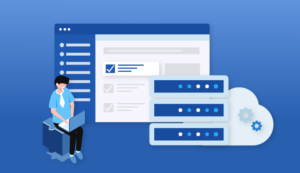As a business owner or manager, you’re always on the lookout for ways to improve efficiency, streamline operations, and better connect with your customers. One powerful tool that can help you achieve all of these goals is WhatsApp Automation.
In this comprehensive guide, we’ll explore everything you need to know about this game-changing technology, from its key features and benefits to the steps you’ll need to take to implement it in your own organization.
WhatsApp Automation refers to the use of specialized software tools and platforms that enable companies to automate their interactions with customers on the popular messaging app, WhatsApp. With over 2 billion users worldwide, WhatsApp has become a critical communication channel for businesses of all sizes.
By automating conversations and tasks on the platform, companies can save time, reduce costs, and improve customer experiences.
In the following sections, we’ll delve deeper into the world of WhatsApp Automation, explaining its growing importance in business communication, the key features you should look for in an automation solution, and the many ways it can benefit your organization.
We’ll also provide practical tips for implementing automation effectively, integrating it with your existing business tools, and selecting the right platform to meet your needs.
The Growing Importance of WhatsApp for Business Communication
WhatsApp has rapidly become one of the most popular messaging apps in the world, with users sending over 100 billion messages per day. This widespread adoption has made it an essential tool for businesses looking to communicate with their customers, partners, and employees.
In fact, WhatsApp Business, a version of the app specifically designed for organizations, now boasts over 50 million users worldwide.
There are several reasons behind this growing importance of WhatsApp for business communication. First and foremost, it offers a highly convenient and user-friendly way for customers to get in touch with companies. With its simple, intuitive interface, WhatsApp allows users to send messages, photos, videos, and voice recordings with just a few taps of their smartphone.
Additionally, WhatsApp enables businesses to reach customers in a highly personal and direct way. Unlike other communication channels, such as email or social media, WhatsApp messages are delivered straight to the recipient’s phone, ensuring they’re seen and responded to promptly.
This immediacy can help businesses build stronger relationships with their customers and improve overall satisfaction levels.
Given these advantages, it’s no surprise that many companies are now turning to WhatsApp Automation as a way to further enhance their communication efforts.
By automating routine tasks and conversations on the platform, businesses can free up valuable time and resources, allowing them to focus on what matters most: delivering exceptional customer experiences.
Key Features of WhatsApp Automation
When evaluating WhatsApp Automation solutions for your business, there are several key features you should look for. These functionalities can help ensure that your automation efforts are both effective and efficient, maximizing the benefits you receive from this powerful technology.
- Chatbot Integration: Chatbots are AI-powered virtual assistants that can engage in conversations with users, answering questions and providing information. Integrating a chatbot with your WhatsApp Automation platform can greatly improve the speed and accuracy of customer interactions, allowing you to provide instant support and assistance.
- Message Templates: Pre-built message templates can help streamline your WhatsApp communications, ensuring that your automated responses are consistent, professional, and on-brand. Look for a platform that allows you to easily create and customize templates to suit your specific needs.
- Conversation Routing: An effective WhatsApp Automation solution should be able to intelligently route incoming messages to the appropriate team or individual within your organization. This can help ensure that customer inquiries are handled quickly and efficiently, improving overall satisfaction levels.
- Analytics and Reporting: In order to continually optimize your WhatsApp Automation efforts, it’s essential that you have access to detailed analytics and reporting tools. These should provide insights into key performance indicators (KPIs), such as response times, customer satisfaction scores, and overall conversation volumes.
- Multilingual Support: If your business operates in multiple countries or serves a diverse customer base, you’ll need a WhatsApp Automation platform that can support a variety of languages. This will enable you to communicate effectively with users from different backgrounds and cultures, helping you to build stronger relationships and improve customer loyalty.
Benefits of Implementing WhatsApp Automation in Your Business
There are numerous benefits to implementing WhatsApp Automation in your business, ranging from improved efficiency to increased customer satisfaction. In this section, we’ll explore some of the most significant advantages you can expect to see when you adopt this powerful technology.
- Time and Cost Savings: By automating routine tasks and conversations on WhatsApp, you can significantly reduce the amount of time and effort your team spends on manual communications. This can lead to substantial cost savings, as well as freeing up your employees to focus on more strategic, value-adding activities.
- 24/7 Customer Support: With WhatsApp Automation, your business can provide around-the-clock customer support, ensuring that your customers always have access to the assistance they need. This can help build trust and loyalty, as well as improving overall satisfaction levels.
- Consistent and Accurate Responses: Automation can help ensure that your WhatsApp communications are always consistent, accurate, and on-brand, reducing the risk of errors or misunderstandings. This can help improve your reputation and make your business appear more professional and reliable.
- Improved Customer Data Collection: By automating your WhatsApp interactions, you can more easily collect and store valuable customer data, such as contact details, preferences, and purchase history. This information can be used to personalize future communications and tailor your marketing efforts, leading to more effective campaigns and higher conversion rates.
- Increased Engagement and Conversions: By providing fast, convenient, and personalized support through WhatsApp Automation, you can encourage greater engagement from your customers. This can help to boost conversion rates, as well as increasing overall customer lifetime value (CLV).
Steps to Set Up WhatsApp Automation for Your Business
Implementing WhatsApp Automation in your business may seem like a daunting task, but with the right approach and tools, it can be a smooth and straightforward process. Here are the key steps you’ll need to follow in order to get started:
- Define Your Goals and Objectives: Before diving into the world of WhatsApp Automation, it’s essential to have a clear understanding of what you hope to achieve. This may include specific targets, such as reducing response times or increasing customer satisfaction scores, as well as broader aims, such as improving overall efficiency or streamlining operations.
- Select a WhatsApp Automation Platform: Next, you’ll need to choose a WhatsApp Automation platform that meets your specific needs and requirements. This should include all of the key features we discussed earlier, such as chatbot integration, message templates, conversation routing, analytics and reporting, and multilingual support.
- Create and Customize Your Chatbot: If you’re using a chatbot as part of your WhatsApp Automation strategy, you’ll need to create and customize it to suit your business. This may involve inputting FAQs, crafting personalized responses, and setting specific rules for how the chatbot should interact with users. Be sure to test your chatbot thoroughly before deploying it, to ensure it functions as intended.
- Develop Message Templates: To streamline your WhatsApp communications, you’ll need to create and customize message templates for common conversations and scenarios. This should include a variety of responses, such as greetings, confirmations, and follow-ups, ensuring that your automated messages are always professional and engaging.
- Set Up Conversation Routing: To ensure that incoming messages are directed to the appropriate team or individual within your organization, you’ll need to set up conversation routing rules within your WhatsApp Automation platform. This may involve creating specific keywords or phrases that trigger certain actions, as well as establishing a hierarchy of priority for different types of inquiries.
- Monitor and Optimize Your Automation Efforts: Once your WhatsApp Automation system is up and running, it’s essential to continually monitor its performance and make adjustments as needed. This may involve tweaking chatbot responses, updating message templates, or refining conversation routing rules in order to improve efficiency and effectiveness.
Use Cases: Industries Leveraging WhatsApp Automation
WhatsApp Automation is a versatile technology that can be applied across a wide range of industries and sectors. Here are just a few examples of businesses that are successfully leveraging this powerful tool to enhance their operations and customer experiences:
- Retail and eCommerce: WhatsApp Automation can be used to provide instant support for online shoppers, helping them with product queries, order tracking, and returns processing. This can help to improve conversion rates and reduce cart abandonment, leading to increased sales and revenue.
- Hospitality and Travel: Hotels, airlines, and travel agencies can use WhatsApp Automation to streamline their booking processes, provide personalized recommendations, and offer real-time updates on flight statuses or local attractions. This can help to create a more seamless, enjoyable experience for travelers, boosting loyalty and repeat bookings.
- Banking and Finance: Financial institutions can leverage WhatsApp Automation to provide instant assistance with account inquiries, transaction confirmations, and fraud alerts. This can help to improve customer trust and satisfaction, while also reducing the risk of security breaches or identity theft.
- Healthcare: Hospitals, clinics, and pharmacies can use WhatsApp Automation to provide patients with appointment reminders, prescription refills, and general health tips. This can help to improve patient adherence and outcomes, as well as reducing the burden on healthcare providers.
- Education: Schools, colleges, and universities can use WhatsApp Automation to streamline their admissions processes, provide students with course information and updates, and offer remote learning support. This can help to create a more engaging, accessible educational experience for learners of all ages.
Tips for Effective WhatsApp Automation Implementation
To ensure that your WhatsApp Automation efforts are as effective as possible, it’s essential to follow some best practices when implementing the technology in your business. Here are some key tips to keep in mind:
- Focus on Customer Needs: Always prioritize the needs and preferences of your customers when designing your WhatsApp Automation strategy. This may involve conducting surveys or focus groups to gain insights into their communication habits and expectations, as well as regularly reviewing feedback and satisfaction scores.
- Test and Iterate: Before deploying your WhatsApp Automation system, be sure to thoroughly test it to ensure it functions as intended. Once it’s live, continue to monitor its performance and make adjustments as needed, in order to optimize efficiency and effectiveness.
- Maintain a Human Touch: While automation can greatly improve the speed and convenience of your WhatsApp communications, it’s important not to lose the personal touch that makes the platform so appealing to users. Be sure to strike the right balance between automated and human interactions, and always offer customers the option to speak with a live representative if they prefer.
- Ensure Data Security and Privacy: When implementing WhatsApp Automation, be sure to follow all relevant data security and privacy regulations, such as the General Data Protection Regulation (GDPR) or the California Consumer Privacy Act (CCPA). This may involve obtaining explicit consent from users before collecting or storing their information, as well as implementing robust security measures to protect against data breaches.
- Train Your Team: In order for your WhatsApp Automation efforts to be successful, it’s essential that your entire team is on board and understands how the technology works. Be sure to provide comprehensive training and support for your employees, ensuring they’re able to effectively use and manage the platform.
Conclusion
WhatsApp Automation is a powerful tool that can help businesses streamline their customer service efforts and improve communication with customers. However, it’s important to ensure that the technology is being used in accordance with applicable data privacy regulations and that your team is fully trained on how to use it. By doing so, you’ll be able to reap the benefits of WhatsApp Automation without the risk of breaking any laws or creating customer dissatisfaction.
Read More.





